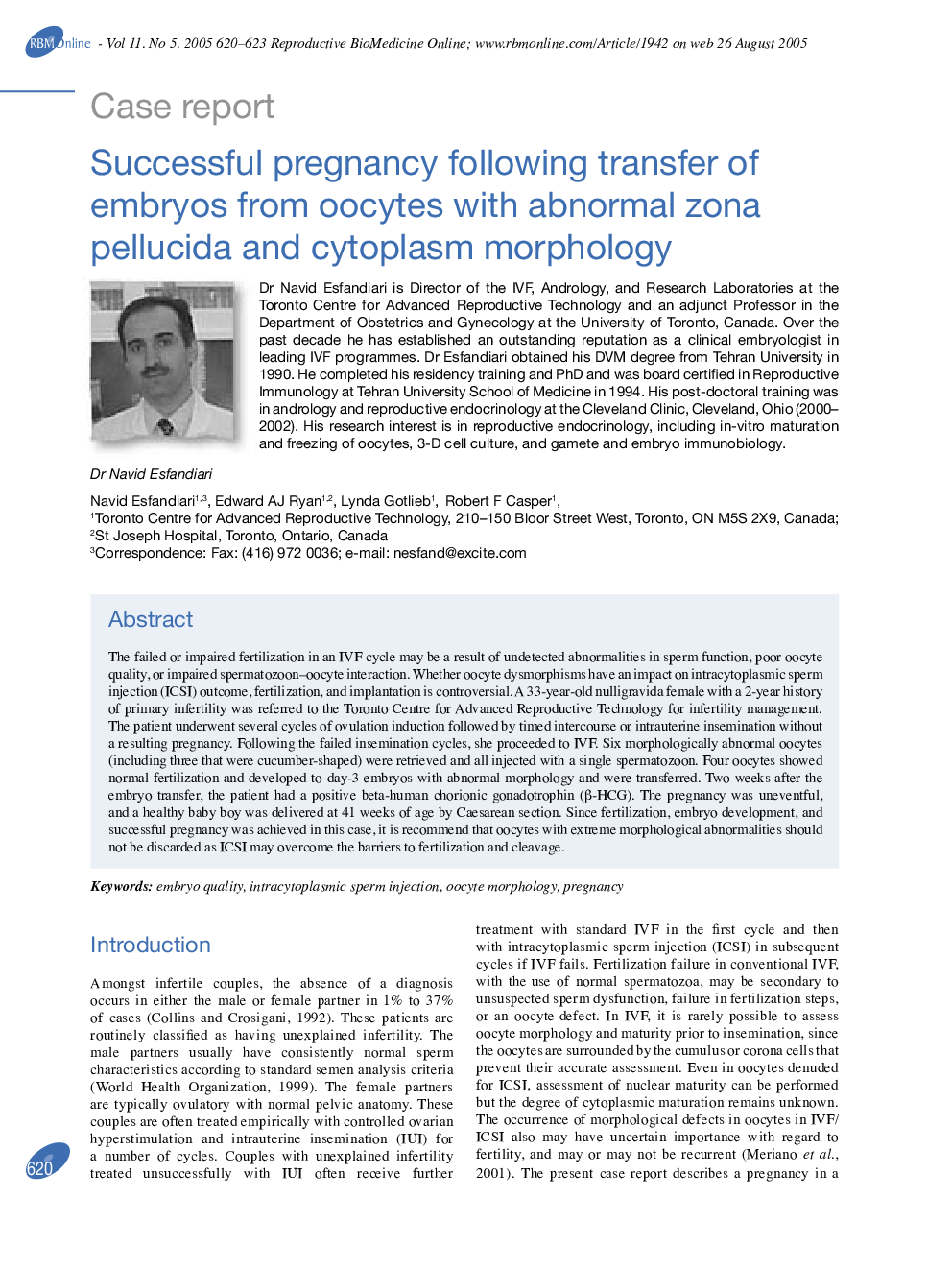| Article ID | Journal | Published Year | Pages | File Type |
|---|---|---|---|---|
| 9334883 | Reproductive BioMedicine Online | 2005 | 4 Pages |
Abstract
The failed or impaired fertilization in an IVF cycle may be a result of undetected abnormalities in sperm function, poor oocyte quality, or impaired spermatozoon-oocyte interaction. Whether oocyte dysmorphisms have an impact on intracytoplasmic sperm injection (ICSI) outcome, fertilization, and implantation is controversial. A 33-year-old nulligravida female with a 2-year history of primary infertility was referred to the Toronto Centre for Advanced Reproductive Technology for infertility management. The patient underwent several cycles of ovulation induction followed by timed intercourse or intrauterine insemination without a resulting pregnancy. Following the failed insemination cycles, she proceeded to IVF. Six morphologically abnormal oocytes (including three that were cucumber-shaped) were retrieved and all injected with a single spermatozoon. Four oocytes showed normal fertilization and developed to day-3 embryos with abnormal morphology and were transferred. Two weeks after the embryo transfer, the patient had a positive beta-human chorionic gonadotrophin (β-HCG). The pregnancy was uneventful, and a healthy baby boy was delivered at 41 weeks of age by Caesarean section. Since fertilization, embryo development, and successful pregnancy was achieved in this case, it is recommend that oocytes with extreme morphological abnormalities should not be discarded as ICSI may overcome the barriers to fertilization and cleavage.
Related Topics
Health Sciences
Medicine and Dentistry
Obstetrics, Gynecology and Women's Health
Authors
Navid Esfandiari, Edward AJ Ryan, Lynda Gotlieb, Robert F Casper,
